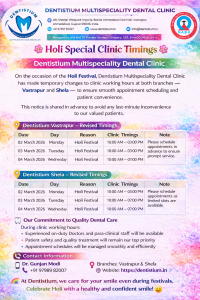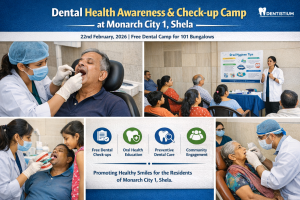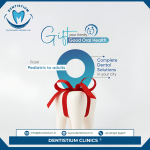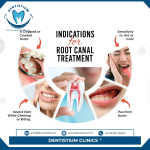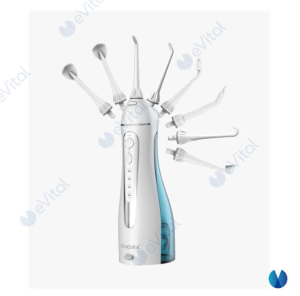NABH Inspection Day’s Celebration
 Celebrating Excellence: NABH Inspection Day at Dentistium Clinics
Celebrating Excellence: NABH Inspection Day at Dentistium Clinics
At Dentistium Clinics, our mission has always been to provide world-class dental care rooted in safety, precision, and patient satisfaction. That’s why achieving NABH (National Accreditation Board for Hospitals & Healthcare Providers) accreditation isn’t just a milestone—it’s a celebration of our commitment to the highest standards of healthcare.
On NABH Inspection Day, we didn’t just undergo an assessment—we celebrated a culture of continuous improvement, teamwork, and unwavering focus on quality.
What NABH Means to Us
NABH sets the benchmark for excellence in healthcare delivery in India. It emphasizes:
Patient safety and rights
Infection control practices
Standardized protocols
Ethical clinical practices
A culture of quality improvement
Preparing for an NABH inspection is no small feat. It involves aligning every process, protocol, and practice with stringent national standards—and ensuring they’re consistently followed.
A Day of Pride and Reflection
The NABH Inspection Day at Dentistium Clinics was more than an audit—it was a day of unity, pride, and accomplishment. The atmosphere across our branches was filled with excitement and confidence as our team showcased the systems, dedication, and diligence that define our daily operations.
From documentation reviews to patient safety demonstrations, every team member played a crucial role. Inspectors witnessed not only well-maintained processes but also the passion behind them.
Celebration After the Inspection
Following the inspection, the entire team came together to celebrate. The event featured:
A short ceremony acknowledging team contributions
Fun games and team-building activities
Refreshments and a celebratory cake
A reflection session on lessons learned and future goals
Moving Forward with Confidence
While NABH Inspection Day marked a significant event, our journey toward excellence doesn’t stop here. We remain committed to evolving, adapting, and pushing boundaries to deliver the best possible dental care.
At Dentistium Clinics, NABH isn’t just a certificate on the wall—it’s a mindset, a mission, and a promise.
Here’s to higher standards, stronger systems, and smiles you can trust—every single day.
Notifications
- Holi Special Clinic Timings – Dentistium Multispeciality Dental ClinicHoli Special Clinic Timings – Dentistium Multispeciality Dental Clinic On …
Read More "Holi Special Clinic Timings – Dentistium Multispeciality Dental Clinic"
- Dental Health Awareness & Check-up Camp at Monarch City 1, ShelaDental Health Awareness & Check-up Camp at Monarch City 1, …
Read More "Dental Health Awareness & Check-up Camp at Monarch City 1, Shela"
- Cashless Dental Treatment – Coming Soon at Dentistium Multispeciality Dental Clinic, AhmedabadCashless Dental Treatment – Coming Soon at Dentistium Multispeciality Dental …
Recent Posts
- Gift Your Family a Lifetime of Healthy Smiles
 Gift Your Family a Lifetime of Healthy SmilesA healthy smile …
Gift Your Family a Lifetime of Healthy SmilesA healthy smile … - Indications for Root Canal Treatment
 Indications for Root Canal Treatment: When and Why It Becomes …
Indications for Root Canal Treatment: When and Why It Becomes … - Implants That Make Smiles Noteworthy at Every Celebration
 Implants That Make Smiles Noteworthy at Every Celebration Life is …
Implants That Make Smiles Noteworthy at Every Celebration Life is …Read More "Implants That Make Smiles Noteworthy at Every Celebration"
- March 2026 (1)
- February 2026 (17)
- January 2026 (8)
- December 2025 (11)
- November 2025 (4)
- October 2025 (4)
- September 2025 (8)
- August 2025 (7)
- July 2025 (6)
- June 2025 (5)
- May 2025 (53)
- April 2025 (2)
- March 2025 (3)
- January 2025 (2)
- November 2024 (1)
- April 2024 (1)
168,211 hits
.
Most Searched Pharmacy products on our site
Effective Oral Care: The ORACURA Water Flosser is your go-to...
.
.


 Celebrating Excellence: NABH Inspection Day at Dentistium Clinics
Celebrating Excellence: NABH Inspection Day at Dentistium Clinics